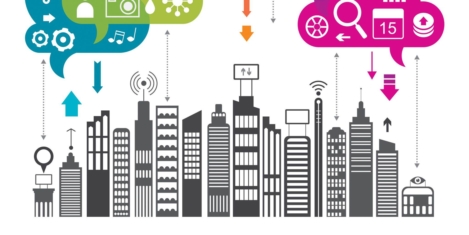September 7, 2017
Report sets out building blocks of a successful digital workplace strategy
 Digital workplace developments often lose their way, or fail, due to a fragmented approach that prioritises a few technology ‘fixes’ over business strategy, according to analysts at Gartner. To combat this, ‘digital workplace leaders’ in public sector organisations need to employ a framework to ensure their digital workplace initiatives address eight critical components required for a successful implementation, according to Gartner. The report (paywall) sets out what it claims are the eight critical components — “building blocks” — that application leaders need when planning, directing and evolving digital workplace programs:
Digital workplace developments often lose their way, or fail, due to a fragmented approach that prioritises a few technology ‘fixes’ over business strategy, according to analysts at Gartner. To combat this, ‘digital workplace leaders’ in public sector organisations need to employ a framework to ensure their digital workplace initiatives address eight critical components required for a successful implementation, according to Gartner. The report (paywall) sets out what it claims are the eight critical components — “building blocks” — that application leaders need when planning, directing and evolving digital workplace programs:






 Three quarters (75 percent) of businesses expect to increase the number of high-skilled roles over the coming years, but 61 percent fear that there will be a lack of sufficiently skilled people to fill them. This is according to the 2017 CBI/Pearson Education and Skills Survey which highlighted that 62 percent see strong competition for candidates with appropriate qualifications as the most widespread cause of skills shortage, followed by a lack of candidates with appropriate qualifications (55 percent). According to the report, while the Brexit debate generates plenty of heat, ‘it’s the white heat of technological change that will mean huge change to the jobs of 2030’. Add that to the obvious question about what skills we’ll need to ‘home grow’ in the absence of free labour movement, and the skills gap is brought into sharper relief argues the report.
Three quarters (75 percent) of businesses expect to increase the number of high-skilled roles over the coming years, but 61 percent fear that there will be a lack of sufficiently skilled people to fill them. This is according to the 2017 CBI/Pearson Education and Skills Survey which highlighted that 62 percent see strong competition for candidates with appropriate qualifications as the most widespread cause of skills shortage, followed by a lack of candidates with appropriate qualifications (55 percent). According to the report, while the Brexit debate generates plenty of heat, ‘it’s the white heat of technological change that will mean huge change to the jobs of 2030’. Add that to the obvious question about what skills we’ll need to ‘home grow’ in the absence of free labour movement, and the skills gap is brought into sharper relief argues the report.
























September 27, 2016
Businesses failing to look at workplace effectiveness in the right way 0
by Tim Oldman • Comment, Facilities management, Property, Workplace design
(more…)